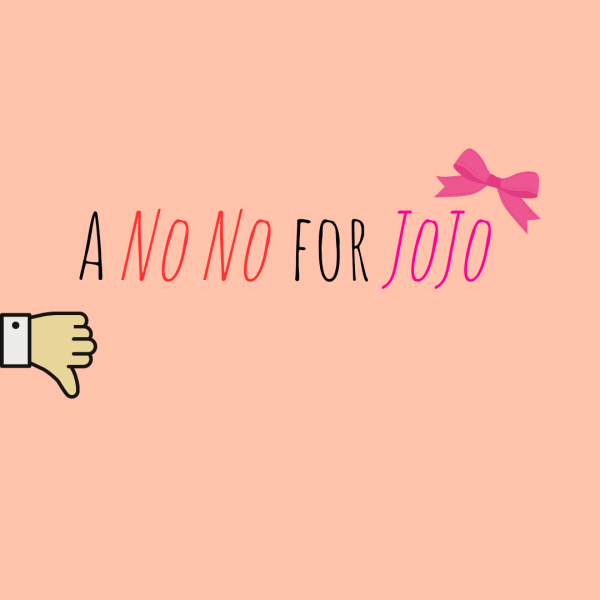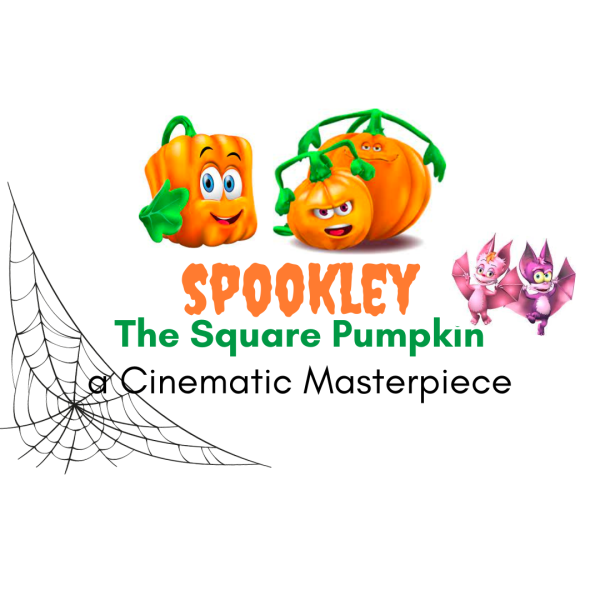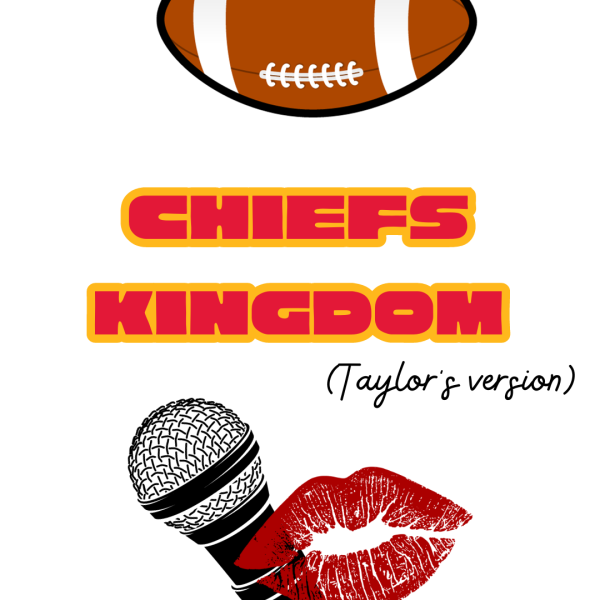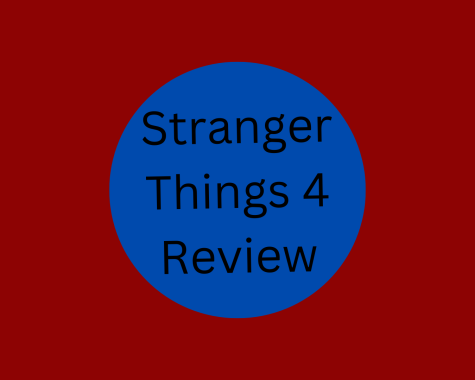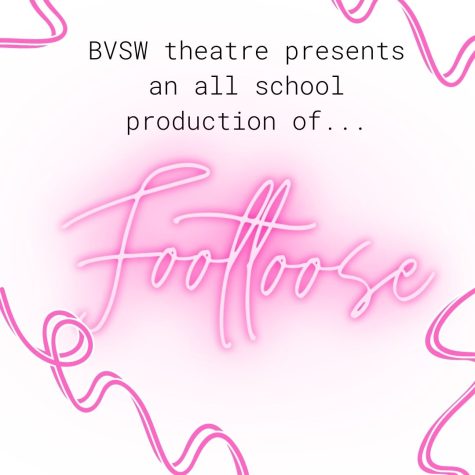Physics teacher Aaron Ballew to appear on Wheel of Fortune (Q&A)
Physics teacher Aaron Ballew will be appearing on Wheel of Fortune on Fox 4 at 6:30 p.m. on May 1.
How did you get the opportunity to play on Wheel of Fortune?
It started off two summers ago. My wife heard that the “wheel mobile,” as they call it, was going to be at the Power and Light District downtown, and she really wanted to go to it, and it she was going to go with her mom. They were going to go there and it was the middle of the summer, and her mom had to bail on her last minute, and she was like, “Well, I don’t want to go up there by myself,” and I didn’t want her to go up there in the middle of the summer while she was pregnant, downtown, by herself in this giant crowd, so I decided to join her. Not being, initially, a huge fan of it — I watched the show, but I was not the diehard that she was.
How do you audition?
So you show up there and there are just hundreds of people — if not a thousand people there. And what you do is you basically fill out a little sheet, throw it into a little container and then they mix it up and pull out names and you go up onstage and actually kind of perform the game itself. So I’m there with my wife — she makes me fill one out, she fills one out, we throw it in there, and of course, whose name gets called out? That’s right. Me. And so I go up there, I don’t make a total fool out of myself apparently well enough and then sat back down, and it was pretty fun. That event by itself was pretty fun. They basically said that what they’ll do is that if you showed some promise, they’ll give you a callback and also callback some other random people, too, just to give everybody a shot.
So a few weeks later, sure enough, I got a callback to do a second interview, like a second opportunity, second try-out, and at the bottom of the email — I didn’t even see it, but my wife did and she read that you can try out as couple and she practically a heart attack. So we tried out — we told them “Hey, we’re going to do this.” We go downtown and we’re in this little conference room, well, more like a convention center kind of thing, and we’re in this room with like 50 other people or so, and we’re basically playing the games, going through, doing practice, calling out letters, solving puzzles. There was actually even a written test that was in there, and we played about as well as we could, I thought, considering the circumstances, so we were pretty happy with that. About halfway through, they sent about half the room home. They said, “Hey, we want to look at these people again we have called up,” so we stayed all the way through to that point, and so we basically made it to as far as you can go. At the very end the guy basically told us, “Well, hey, thank you for auditioning — we’ll let you know,” and then we just kind of left and so my wife and I, we left going “You know, we did about as well as we could, so if it’s meant to be, it’s meant to be — if not, it’s not.”
What happened when you got the callback?
Two weeks later, on the last day they said it would arrive, we got the written letter that said they wanted us on the show, and so we were really excited at that point, telling everybody. Now, my wife was just about to give birth to our second child, and so we basically had to tell them that, that “Hey, we can’t be on the show anytime soon because, well, we have a brand new baby girl,” and so we kind of thought we lost our chance, because we told them we can’t do it now, and then so a year went by and we still hadn’t heard anything back from them, so we were like, “Oh, I’d hate to think we lost out on our chance for that, but you know, kids come first, of course.” But sure enough, the next year they called us again and said they wanted us, and funny thing is, my wife was pregnant again with our third now, but it didn’t interfere. We filmed back in January of this year, and it will air May 1, and so that was how we got on the show, by itself.
What was it like when you arrived in Los Angeles?
The actual experience of going — it was definitely unique. It was definitely interesting. It’s filmed in Culver City, out in Los Angeles — a suburb out there. My grandmother actually used to work for Sony, so I’ve actually toured that lot, been on that studio a few times, been on a few tours — so that was cool to be out there for real this time. We just stayed with my grandmother to save money on a hotel, because they don’t pay for your flight or your stuff, but you’re guaranteed $2,000 for a couples — $1,000 if we were individuals. So you’re guaranteed enough money to cover the cost — they just don’t pay for it up front.
When we got there, we were monitoring the traffic before we left to make sure we had enough time — the traffic in LA is absolutely terrible — and sure enough the moment we left, there was a giant accident — a sig alert as they call it — basically backed-up traffic. We were sitting in this long line of traffic out on the 405, just waiting, inching before we’re like “Ah, we’ve got plenty of time,” and then 15 minutes later went by and we still hadn’t moved and we’re like, “Uh, oh.” Then 30 minutes went by and we’re like “Oh, no,” and then 45 minutes went by and we finally get through and then we’re just like barreling down the highway at like 90 miles an hour to get to the studio, because they said, “Don’t be late.” We eventually get on the lot, we’re parked, my wife’s got the extra clothes that they told us to pack, and we’re carrying our bags running through the parking lot, wanting to get to where they meet with us, and we get there and find out that the little shuttle they were going to use for the other contestants who were staying at a nearby hotel was late, so we did all that worrying and rushing and we were fine. So, we got there. They put us, actually, in the jeopardy studio because there was a little more seating there for us, and they kind of talked us through everything, did our make-up for our TV — that was pretty interesting, there. I was able to get a little bit of a tan in January, which was nice. Like I said, it was a lot of legal stuff, too, you know, about making sure no cheating was going on, and that everybody was getting a fair chance. They didn’t want anybody leaving feeling like they were short-changed.
What did you do the morning of to prepare for the show?
He actually had us practice our little speech at the beginning that they give, and that was actually really nerve-wracking because they’re like, “Okay, it’s gotta be 30 seconds; you gotta get everything in, everything out, all your shoutouts,” so that was a little nerve-wracking, and then being able to do it on the spot, too. Then we actually got to go on the real studio, got to do some practice rounds, got to practice spinning the wheel, practice calling out letters, seeing where everything was — You know, what you see on TV is obviously just the board, and the wheel and where you’re standing, but off to the side, for the contestants and for Pat Sajak the host, they have, like, five or six video boards that have different things on them, whether it’s your prize money or what your current total is, your running total — You’ve got what letters have been called, or how many letters, so when Pat says there is “3 Bs”, it’s because there’s a little screen off to the side that’ll say “3” and then the letter “B,” depending on what you called, so he does know the puzzle — they go through it right before — but that’s it. There’s a video screen for the used letter board, so they have all the letters and they mark them out as you’re going along, where all the vowels are and things like that. And so you just kind of have to get into that habit of alright, now you’ve got these extra tools at your disposal — get used to using them — same time as calling out and playing the game, going fast — that was the tough thing getting used to — you can play the game when you’re not worrying about calling letters, but when you have to call your turn every single time and think about the puzzle and think about spinning and doing all the little things they tell you like “don’t clap up here, by your chin, because that’s where the microphone is, and that’s all they hear, so clap down here,” and when you reach for [the wheel], they want to make sure you pull it through to the left and push it. It was just all these little details about these little things you were constantly, like, nit-picking at: no pauses, no “ums” as you are going through, so it was difficult to keep all those things straight, but they did a pretty good job practicing. It was like three people or so that were there to try to tell us what to do and kind of help coach us along, everybody equally.
And then we went back and just kind of went back and forth a little bit, just to get ready. They already had who was going to play, so like, this couple and this couple were going to be on a show, and then we drew to see, basically, which show we were going to tape, so Monday through Friday they do all the shows of the week, all in one sitting, and so you’re there with a week’s cast, essentially. And of course, the guy that drew for us for our show — we drew Friday. That meant that we’d have to sit through all four other shows before we got to tape, which was, I think, both kind of a blessing, a little bit, because you got to watch the show and really get back into it, and start thinking of it from a playing perspective.
What was it like being the last episode taped?
I always feel like those first couple of episodes, and I have to imagine this, going forward, like, the people that tape on friday have had the chance to see all the shows and go through and essentially, play along, by yourself, kind of as they’re going through and give yourself a little review. That helped, but it also helped out everybody else, too. And it just gets a little nerve-wracking; you just have to kind of sit there, and if you’re going to be in the audience, then you have to be completely quiet, except for the clapping. They had a guy standing there, saying that you can’t say anything, because if the microphones in the crowd pick up you saying what the puzzle is or what parts of it are, they have to throw that puzzle out, cause it would be theoretically unfair if one person heard it and another person didn’t. If you wanted to, they had kind of a back room you could just watch and talk and eat and do anything you wanted, and so we kind of bounced back and forth between that as the shows were going on. They do give you kind of a commercial break. They obviously don’t go to commercials, but they do give you a break, where the commercials normally are. And so then they kind of move things around if they need to, change the board, update Pat and Vanna as to what the puzzle is so that they’re at least aware of what’s going on, give you a little bit of coaching if something went wrong the previous round. The wheel has different prizes on it during each round, so they’ll come in and update it, too. They’ll do some stuff for the final round — they also did, in between episodes, some taping for promotional things. It was funny watching Pat and Vanna totally — because you see all the outtakes right there — so they kept screwing it up right before our episode. It was kind of funny, but at the same time we were like, “Alright, come on now, wrap it up — let’s get on stage, because I want to do this.” It started at, like, seven in the morning, and we didn’t leave there until seven at night — the whole time. Filming itself was about five or six hours.
What was the experience like when it was time to be on the show for real?
We finally got up there, practiced our speech one last time in front of the coaches, we got all the finishing makeup back on, they mic us up, get us out there, and after that, you’re just kind of waiting there. They go through one quick little round, and then it’s “Alright — let’s go.” Then the music starts and you can hear it — they pipe in the music that would normally start it, so you feel like you’re watching it, and there’s a little video monitor off to the side where you can see yourself, from what’s going to actually be on TV, and so that was a little weird.
The other weird thing, too, is when they’re doing the one rehearsal episode right before they did the real ones — they basically film it and have the video screen so it looks exactly like the normal broadcast, but it’s like: people are just walking around and it just looks like a terrible, terrible production version, but really they’re just trying to to make sure all the cameras are in the right spots. They’ve got the contestants and what they’re doing. So it’s funny because the cameraman and the crew would be in the background of all these shots — it’s looks like what would happen in real life because it’s a good production video, but then you have people walking around, and it was just a practice host so it wasn’t actually Pat, and it was just kind of funny to see that. So you actually get out there and the music starts up, Pat and Vanna walk in — that was the first time, honestly, that we got to see them: when they walked in on that first show was the first time was got to see them. They come in, do their normal thing, go there, give us a toss-up, and then the game was on. And you just kind of go through the game as best as you can. Basically, the commercial breaks — Pat would say, “Hey, great job! Keep it up!” — some words of encouragement — and then he was gone. That was about our only interaction with him by ourselves. You didn’t really get to hang out backstage with any of them. They had their own little section, and we had our own little section of the stage. Otherwise, it was a really good experience — got to make a little extra two-days vacation out of it, stayed there and see a few sights and since I’m from there, it was nice to get back there and see some of my family as well.
Do you think it was all chance or mainly skill that got you on the show?
We got lucky that we even got the opportunity to interview. I’m not great at the game by itself — my wife’s the ringer. She’s the one that is really good at it. I’m just the guy who doesn’t have a problem standing up in front of people and making an idiot of himself, which you kind of have to be willing to do on television to get noticed.
Were you as sarcastic on the show as you are in real life?
Well, I didn’t say a whole lot so, other than the intro, you didn’t get the chance to say too much or develop too much of a personality.Obviously, they do encourage you to celebrate as much as you can when you win, but plan those out, because it’s a little embarrassing when you go to high-five somebody and they want a hug or vice versa, so they say to coordinate that in advance, especially with couples.
What were the people like?
It was nice that everybody there — contestant wise — was really nice and we got to know some really good people. It would’ve been nice if we got to know them a little bit more; we could stay in contact, but they were all really good people. The coaches that worked with us were great. My hat’s off to them because they do that for a living. They do that every week, week in, week out. They’re putting together the shows. They’re getting these contestants — some of their life-long dream, like my wife, for sure, and so my wife was freaking out the whole first hour we were there. But they have to remain calm. At the same time, they kind of have to be excited for those people because to them it’s not a big deal to be on the show, but obviously, to everybody who is participating, it is. And they were always very encouraging, very positive, very energetic, and so they were definitely great for the show. One thing they did say — the crew — again, to ensure consistency — the crew, other than those coaches we had, was not really allowed to talk to us, like, they could basically just maybe answer one-word questions or say “Good job” or “Good luck,” just like that, but they weren’t allowed to talk. And everybody had a very specific job they had to complete, and that was all they did, like right before the show was about to start, my wife looked down at the wheel and noticed one of the wedges was moved over, and she’s just like, “Hey, the wedge here is moved — do you want to fix it?” and the coach freaked out like, “Oh my gosh — we’ve got to find John,” you know, looking for this one guy, because that was his only job, and he was the only one that could do it. And we’re sitting here for five minutes and Lindsey’s like, “You know, I could just move it — it’s right there,” because that was all they ended up doing, but everybody had a specific job, like one guy had to mic up everybody and that was it. All the jobs were very clearly defined and very specific — it was very structured, I would say, in that sense.
Do you have anything to add?
Oh, the other thing I was going to add: when you watch the show — when you stand behind the wheel, they have like a hydraulic lift, so they can adjust the height of where people are, and so if you watch the show, I will tell you this: Pat will appear to be as tall as I am because my hydraulic lift was all the way on the floor — it could not get any lower. Pat’s was jacked up as high as it can go, so he’s really not that tall of a person, so the problem with that is that I’ll appear at a normal level, Pat will appear at a normal level, but my poor wife, who is reasonably tall, like 5’7” or so — she’s gonna look like a dwarf because we had to stand on the same platform, so they jacked it down to fit me, and my poor wife’s going to be barely peering over the end. And the other two couples — the guys on both of those were actually pretty tall. The guy next to us, at least, was pretty tall, so my wife’s going to appear like a dwarf.
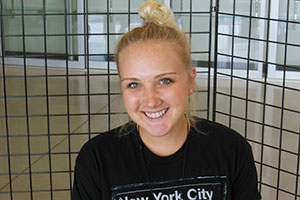
Ellie is a junior and a first-year staffer for the Standard, and is constantly looking for a new adventure. Her hobbies include going on road trips with...


